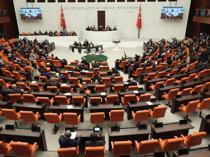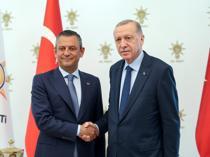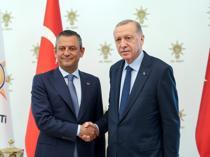No place for 'authoritarian regimes,' Turkey tells Syria
LONDON - Agence France-Presse

Turkish President Abdullah Gül. AA photo
Turkish President Abdullah Gül said there was "no place for authoritarian regimes" in the Mediterranean region, heaping more pressure on the embattled Syrian regime, in comments published today.
"I strongly believe that there is no place any more for authoritarian regimes - single party systems that do not have accountability or transparency - on the shores of the Mediterranean," he told Britain's Sunday Telegraph newspaper.
"As someone who has studied in the United Kingdom, lived in the United Kingdom, has this world view, President [Bashar al-] Assad should be able to understand this."
Gül was to arrive in Britain later in the day, where he will be undertaking a three-day state visit next week.
His comments, made before the expiry of an Arab League deadline at midnight Saturday (2200 GMT) for the Syrian government to halt a deadly crackdown on protesters, was the latest criticism of Assad's regime by Turkey.
Turkey, once a close ally of Syria, has already announced a halt to joint oil exploration with Syria and has threatened to cut electricity exports to its neighbour.
But despite Ankara's protests and the Arab League ultimatum, violence in Syria has shown no sign of abating and Assad has defiantly vowed to fight and die for his country if faced with foreign intervention.
In today's interview, Gül said he had been encouraging his Syrian counterpart to embark on democratic reforms before the uprising.
"We strongly advised him to hurry up and accelerate the pace of reforms," he said.
"Otherwise, if he was not the leader of the change himself, then things would turn out to be too bad, we said to him."
Gül also said that Turkey still aspired to join the EU despite the debt crisis engulfing the eurozone.
"We see this confusion, but we believe this is going to be a temporary situation within the European Union," he said. "And we approach the negotiations with a strategic vision, and are very determined."
Ankara opened membership negotiations with the EU in 2005 but progress has been slow.
















